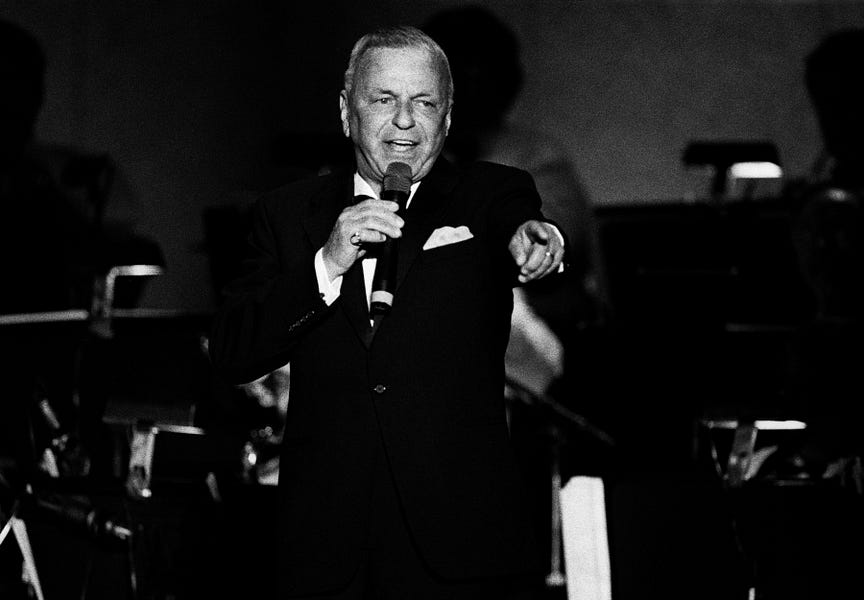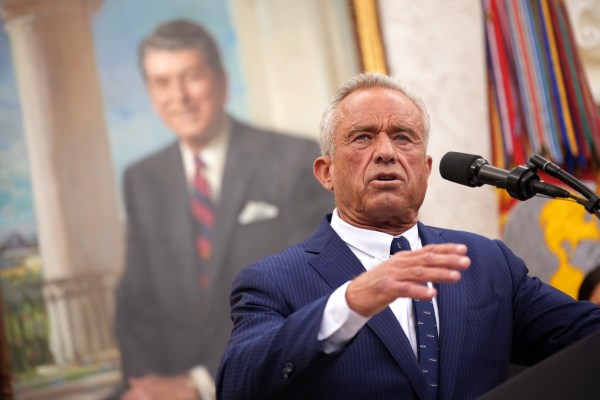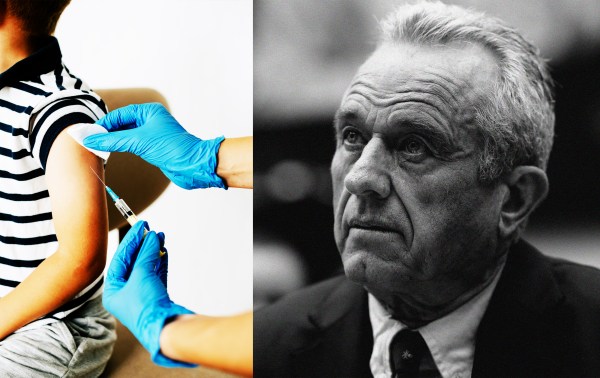“What would Frank do?”
Men have pondered this question since 1942, when a 27-year-old Francis Albert Sinatra became America’s first true pop star. The answer to that question became obvious soon after he hit the big time: He would have as much fun as possible. “You’ve gotta love livin’, baby, cause dyin’ is a pain in the a**!” he once quipped, summarizing a philosophy we could all probably use a little of right now.
Amid an interminable pandemic, however, where it seems more viable to live like Howard Hughes than a carefree crooner, finding fun in all things can prove difficult. Thankfully, normalcy is growing increasingly tangible, and with an end to this calamity in view, Sinatra’s legacy reminds us how fulfilling ordinary life can be. The formula for living like the Chairman of the Board (while avoiding some of his less noble enterprises, multiple divorces and vicious fights among them) is relatively simple: Have adventures in loyal company, dress exquisitely for every occasion (preferably in something orange, his favorite color), and only drink with a generous number of ice cubes on hand. For post-COVID satisfaction, Sinatra would need little more than a slanted fedora and well-stirred martini.
But there are still a few months to endure before ordinary life can return, and escapism is vital until then. To that end, it is difficult to imagine a finer source of distraction than Sinatra’s immense discography, which has been fundamental to my continued sanity since I first downloaded Zoom.
It seems as though Come Fly with Me (1957) was designed specifically to be played at this time. A musical voyage across the globe, opening with the flight and concluding with a reflection on the comfort of returning home, it serves as a portal into idyllic surroundings ranging from Hawaii to Capri. Uniquely diverse and interspersed with exotic flourishes, the album alternates between tender ballads (“Moonlight in Vermont” is perhaps Sinatra’s most beautiful recording) and vigorous blasts of swing, evoking a necessary sense of tranquility for the present moment.
Then there is Songs for Swingin’ Lovers! (1956), a life-affirming celebration of everything romantic on which Sinatra’s phrasing never sounded warmer. Varied in tone and sensibility to delightful effect, the album is his magnum opus. The pure giddiness of “You Make Me Feel So Young” contrasts adroitly with the nostalgic yearning of “I Thought About You,” the restrained playfulness of “Makin’ Whoopee,” and the feeling of newfound infatuation evoked by “Old Devil Moon.” At its center, however, is “I’ve Got You Under My Skin,” a piece so sublime that the orchestra broke into rapturous applause when it was completed. Building from an opening of quiet longing to a dizzying crescendo, the sheer bliss it invokes could liberate any listener from the quarantine blues.
Beyond his iconic hits (“The Tender Trap,” “How Little We Know,” and “Luck Be a Lady” to name a few favorites), Sinatra recorded countless singles and album tracks that have been unjustly neglected over the years. In our current situation, such songs are ripe for rediscovery. Take, for instance, the wonderful “Same Old Saturday Night,” which, inexplicably, was never performed live, has rarely been anthologized, and remains condemned to obscurity. “There’s a Small Hotel,” found on the soundtrack to Pal Joey (1957), is similarly deserving of greater acclaim. With Sinatra’s delivery at its most delicately expressive, and Riddle’s instrumentation at its most inventive, it seems bizarre that such a charming recording has been so disregarded.
Like America itself, Sinatra was an entity of endless contradictions. Despite his exuberance, he suffered from severe depression, and he was equally capable of tremendous generosity and savage cruelty (“Frank’s a violent guy and he’s friends with too many guys who’d rather kill you than say hello,” Peter Lawford once remarked). Though a lifelong champion of racial equality and other progressive causes, he grew increasingly conservative as he aged. At his most prosperous, he still appeared troubled by life’s grim uncertainties.
Sinatra’s character was no secret; he was always as vulnerable as the rest of us. Yet he was wholly self-made and independent, equipped with an industriousness that allowed him to overcome whatever challenges he faced, and this resilience ultimately characterized all of his recordings. Sinatra was nothing more than a man, and when he rose to ineffable heights, the public nature of his inconsistencies affirmed to others that they could do the same. For centuries to come, he will continue to inspire those brazen enough to pursue the American Dream.
For his captivating story and unparalleled artistry, Sinatra is the COVID companion we need. At the end of his final concert, his parting words to the audience were, “May you live to be 100, and the last voice you hear be mine.” Undoubtedly, he hoped that his voice would be animating a fitting composition in that moment, most likely “One for My Baby (and One More for the Road).” I certainly hope to honor his request.






Please note that we at The Dispatch hold ourselves, our work, and our commenters to a higher standard than other places on the internet. We welcome comments that foster genuine debate or discussion—including comments critical of us or our work—but responses that include ad hominem attacks on fellow Dispatch members or are intended to stoke fear and anger may be moderated.
With your membership, you only have the ability to comment on The Morning Dispatch articles. Consider upgrading to join the conversation everywhere.